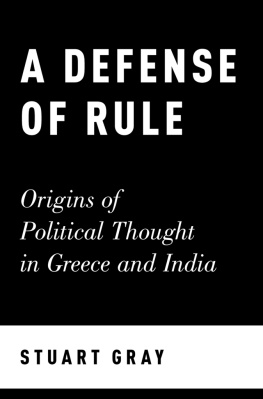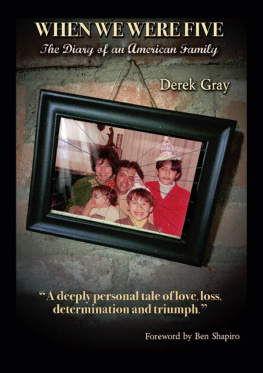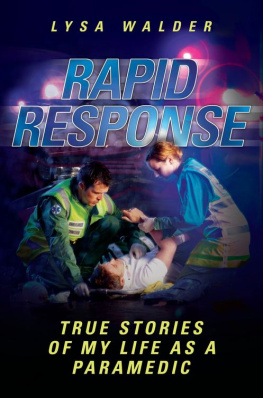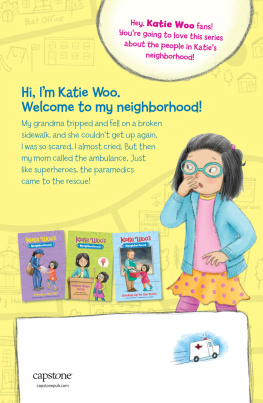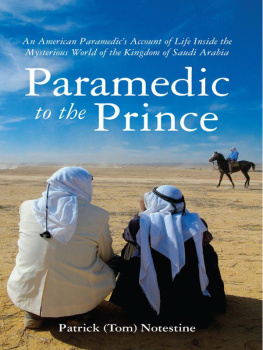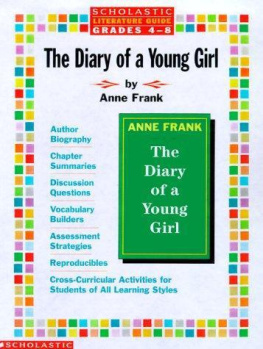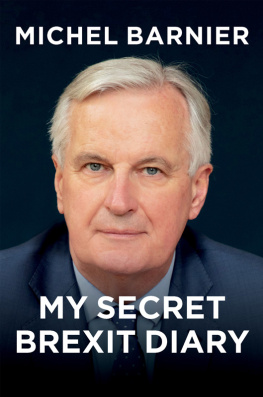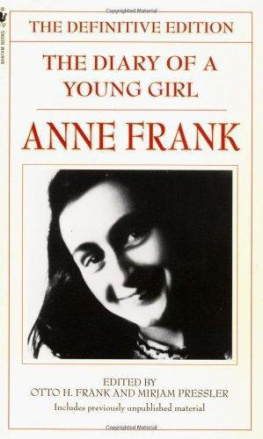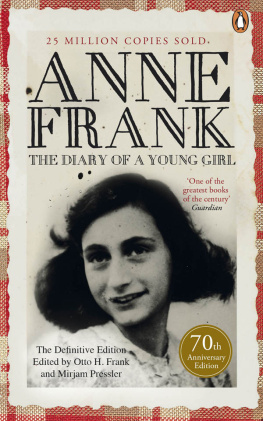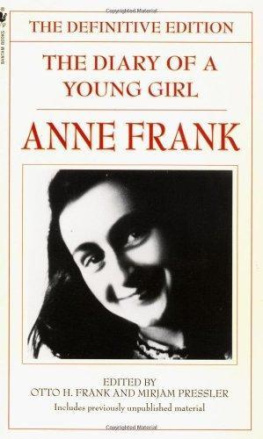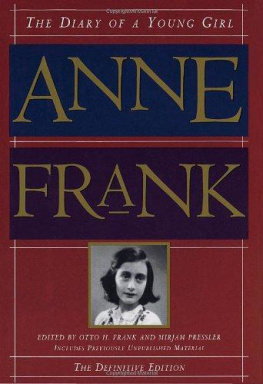My love and thanks to Jac, without you Imay not have stuck this out. Thanks to Allan for holding the fort.
Thanks to all of my readers in the virtualworld.
Thanks also to my friends and colleaguesin the Service who gave me encouragement and support, especially B, K, I and T.
Of course, my deepest thanks to the manyhundreds of patients who have become part of the diary and without whom not aword of it would have been written.
Finally, thanks Scruffs...frequentinterruptions for attention helped break the monotony of writing!
About the Author
Stuart Gray is a professional paramedicwho works for the London Ambulance Service. He was born in Scotland and grew up in a small town called Barrhead, near Glasgow.
When he was 16, he took a job as a cubreporter on his local paper. Then, in the 1980s, he moved to London and becamea professional songwriter and musician. He also did a three year stint with theRoyal Army Medical Corps before settling on a career in paramedicine.
He joined an ambulance service in Surrey and studied for a degree. He has a first in Paramedic Science from the University of Hertfordshire and now works in central London as part of an ambulance crew andalso as a solo Fast Response Unit (FRU) paramedic, on his own in a car.
Stuarts blog 'AParamedic's Diary' is read all over the world. The Times voted it one of the Top 40blogs that really matter stating: that Stuart 'encounters more blood-curdlingdrama on a single shift than most people would in a year' and that his writingis 'compelling and plainly written.'
The award-winning 'A Paramedic's Diary:Life and Death on the Streets', is Stuarts first book and has been a huge hit.Based on a year in his working life, it is an unsanitised account of the upsand downs of the job. Funny, poignant, heart-warming and emotional, it showshow peoples lives are literally in his hands on a daily basis.
As Stuart says; There are graphic detailsin some of the stories. Some of it will make you wince, but if I sanitisedthings it wouldnt reflect the job. Theres not always a happy ending, andsometimes its a heartbreaking job, but I do get to do some amazing things: mycolleagues and I bring people back from the brink of death - I cant think of abetter reason to write about my work than that.
A Paramedics Diary recently won an award:

His next book 'The Street Medic's Survival Guide' isaimed at people wanting to become a paramedic a kind of insiders guide aboutthe profession and how to survive it.
Stuart has recently completed his firstnovel, The Station which takes the readerthrough a single shift at a busy emergency ambulance station in London. As the story unfolds, the reader is given a glimpse of the world of the Paramedic.There is humour, fear and sadness mixed into a tragic sub-story that suddenlyleaps out of the pages to shock the reader back into reality. The Station isnot quite what you think it is...
Stuarts lives in Hertfordshire with hiswife and two children.
CONTENTS
F OREWORD
This is an account of my working life as aparamedic in London. I came to the profession relatively late; I was a cubreporter back home in Scotland when I was only 16, spent a dozen years as aprofessional songwriter and musician, dabbled in business and computers throughthe late 80s and also did a three year stint with the Royal Army Medical Corps.
I finally settled on a pre-hospital careerwhen I joined an ambulance service in Surrey. I underwent training to become aparamedic, in the days before the job title was protected as it is now, andwhen the training was a lot simpler. As the paramedical profession began togain respect and importance in the ambulance service, I found myself out of theloop. I didnt work for the NHS and I couldnt continue using the title unlessI became registered. So I completed a three year honours degree in ParamedicScience at the University of Hertfordshire (I got a first, which was an amazingpersonal achievement), got myself on the register and, well, the rest ishistory. (I nearly went for medicine but I missed UCAS registration by onemonth; its still an option I might look at in the future).
Much of the material used in this book isdrawn from my reflective diaries of the last four years. The more recent ofthese appear on my blog, The Paramedics Diary (you can read it at http://theparamedicsdiary.blogspot.com/ and you can email me from there if you like). It contains patientcases from my work as part of an ambulance crew and as a solo Fast ResponseUnit (FRU) paramedic, on my own in a car. When I describe situations where Imwith a crewmate, Im in an ambulance, obviously. If Im alone, Im on the FRU.
Of course, some of it is skewed in favourof my own opinions and judgments but the call types, the emotions, the abuseand the hard work are all the same for everyone on the frontline.
Names, places and other details have beenchanged or omitted to preserve patient anonymity and confidentiality whereconsent has been impossible to obtain. This book is not endorsed in any way bythe ambulance service I work for.
There are graphic details in some of thestories. Some of it will make you wince, but if I sanitised things it wouldntreflect the job. Theres not always a happy ending, and sometimes its aheartbreaking job, but I do get to do some amazing things: my colleagues and Ibring people back from the brink of death - I cant think of a better reason towrite about my work than that.
HOAX CALLERS AND TIMEWASTERS
REGULAR CALLERS ARE known as frequentflyers.
Dont get me wrong, some people call usoften because they need us often - they have genuine problems. But a few arejust timewasters, draining the resources of the NHS by calling us just becausethey can.
They are dangerous people who cost lives,and theres not a damn thing we can do about it.
One old guy on my patch - Im talking aman in his early 60s, at an age where he really should know better - calls 999almost every other day. He has it down to a fine art: he knows when our shiftschange and he times his call to coincide exactly with crew turnarounds,ensuring a speedy response and a fresh face or two. He rings for chest painthat he doesnt really have, abdominal problems that dont exist and variousother complaints that he knows will guarantee him an emergency response.Partly, he likes the attention, partly he just likes to get a free ride down tothe hospital where hes guaranteed more attention and a free lunch (orbreakfast, or dinner). Some weeks, hell have a car and an ambulance outsidehis home every day; if he visits a friend or goes off on holiday with familymembers, the calls stop - he never seems to get ill on those days.


